Chamomile tea has gained recognition as one of the most popular herbal teas in the world, known for its soothing and medicinal properties. For centuries, this herbal tea has been used in traditional medicine to promote relaxation, improve digestion, and support overall well-being. Whether you’re sipping it before bed or using it to ease an upset stomach, chamomile tea is more than just a comforting drink—it’s a powerful herbal infusion backed by both tradition and science.
In this article, we will explore origins, healing properties, and practical ways to incorporate it into daily routine. If you are looking for a natural remedy to promote your night’s sleep and a calmer mind, chamomile tea is sure to help.
The History and Origins of Chamomile Tea
Chamomile tea has a rich history, dating back to ancient Egypt, where it was used to treat fevers and honor the sun god Ra. It was used to soothe nerves by the Greeks and Romans, for its healing and relaxation properties. Over time, chamomile tea has spread to Europe and beyond, and now becomes a popular choice in wellness trends.
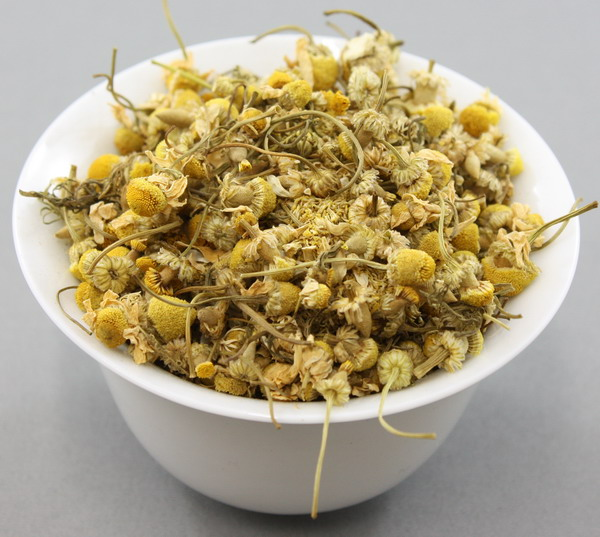
Chamomile is a flowering herb from the Asteraceae family, which also includes daisies and sunflowers. This plant produces small, daisy-like flowers that are carefully harvested and dried to create potent chamomile tea. There are two main types of chamomile used in tea, including German chamomile (Matricaria chamomilla) – the most commonly used variety and Roman chamomile (Chamaemelum nobile) – often used in essential oils and herbal remedies.
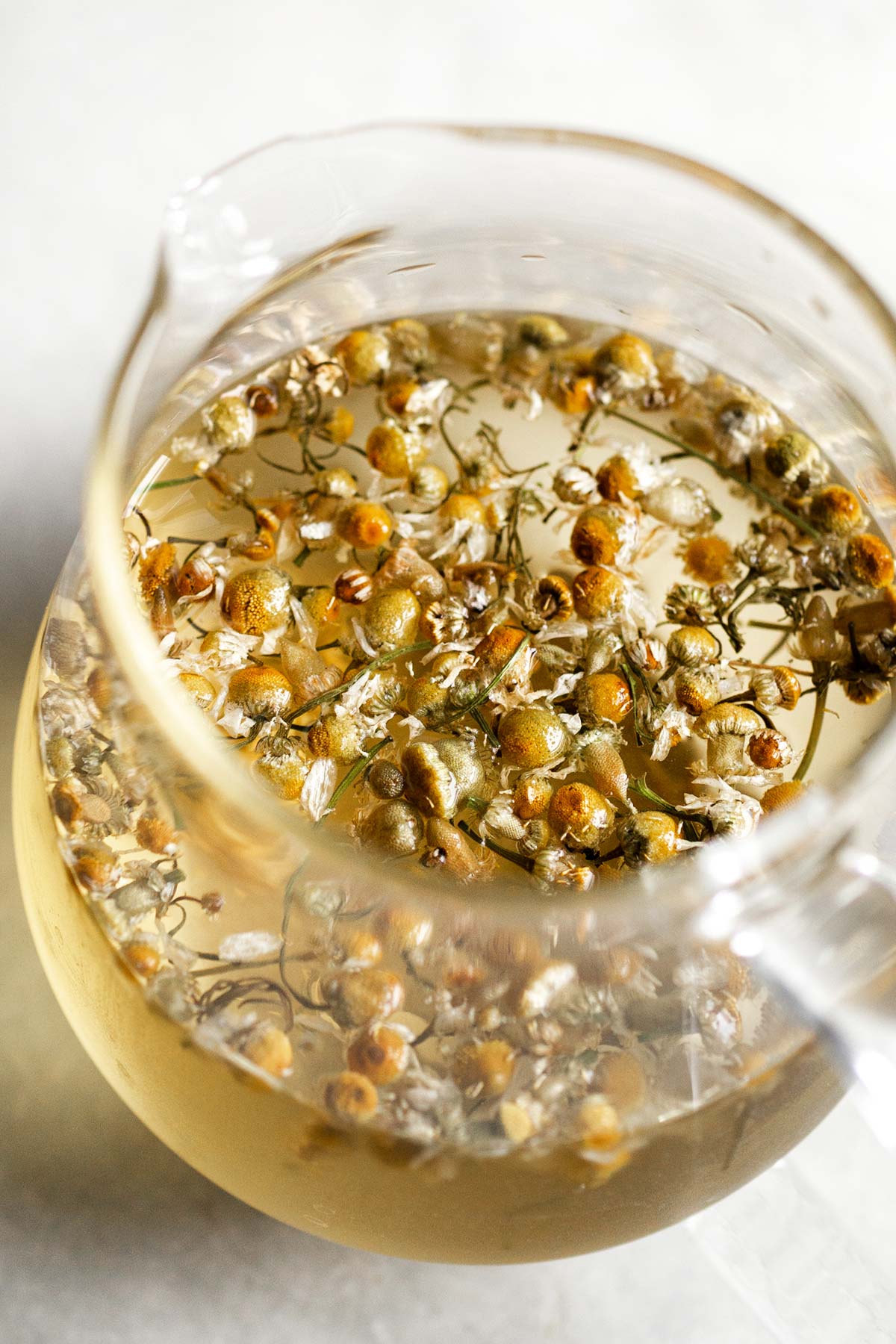
Health Benefits of Chamomile Tea
Chamomile tea offers wealth of health benefits that make it a versatile drink:
1. Promotes Relaxation and Sleep
Chamomile tea contains apigenin, an antioxidant that binds to certain receptors in the brain, helping reduce anxiety and promote better sleep. A warm cup of chamomile tea before bed can help you unwind and enjoy a restful night’s sleep.

2. Supports Digestive Health
Chamomile tea can help with an upset stomach, bloating, or irritable bowel syndrome (IBS). The reason is this herbal tea is packed with anti-inflammatory properties, which aid in relaxing the digestive tract, making it useful for treating indigestion and stomach cramps.
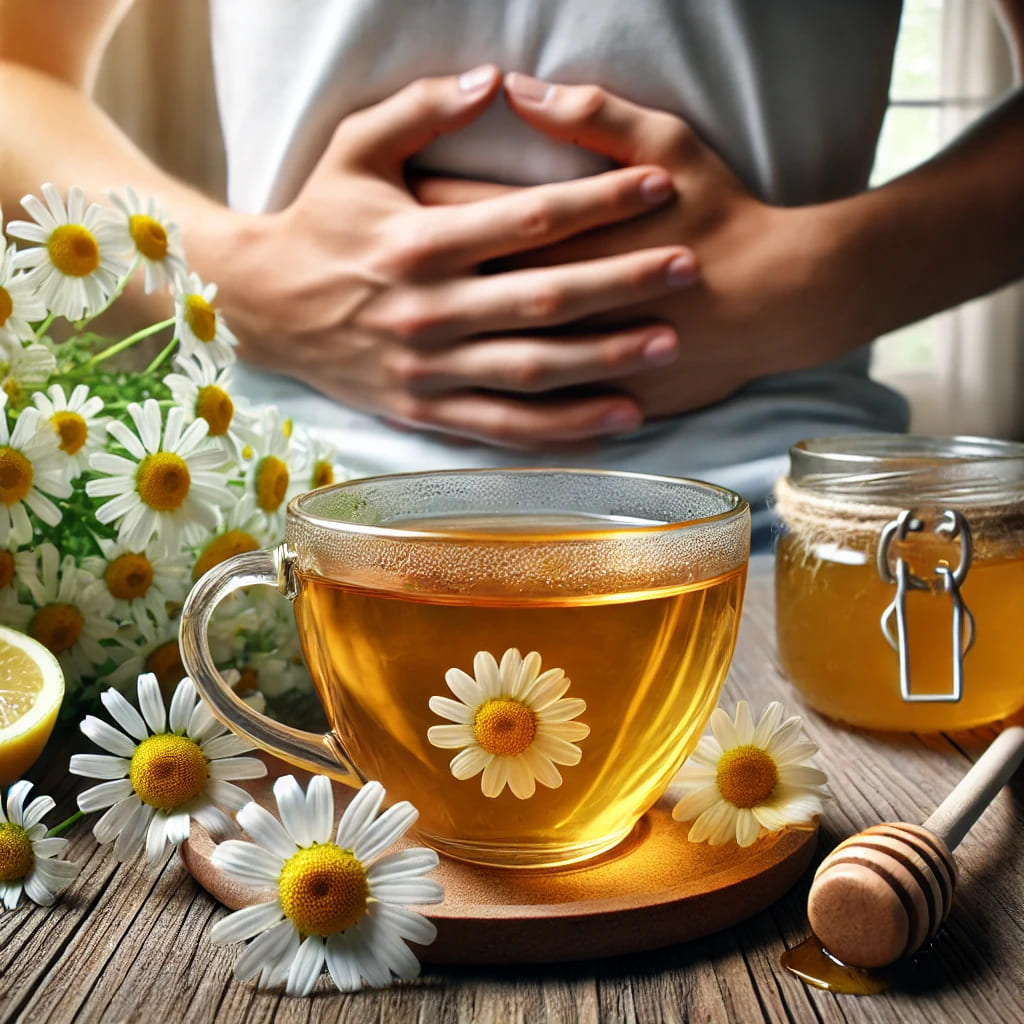
3. Boosts Immunity
Chamomile tea is rich in antibacterial and antioxidant properties that help fight infections. Drinking chamomile tea on a daily routine may help reduce the severity of colds and flu, supporting overall immune health.
4. Reduces Stress and Anxiety
Chamomile tea is known for its calming effects, relaxing the nervous system, and thereby, helping lower stress and anxiety levels. Sipping a warm cup of chamomile tea can help reduce cortisol levels and promote a sense of well-being.

5. Supports Heart Health
Chamomile tea contains apigenin, luteolin, and quercetin, which are flavonoids, helping lower blood pressure and cholesterol levels. These compounds contribute to better circulation and overall heart health.
6. Aids in Skin Health
The antioxidant and anti-inflammatory properties of chamomile tea makes it beneficial for skin care. Used internally or as a compress, this herbal tea can ease skin irritation, reduce redness and acne.
How to Make Chamomile Tea
Ingredients:
- 1–2 teaspoons of dried chamomile flowers
- 1 cup of boiling water
- Honey or lemon (optional)
Instructions:
- Steep dried chamomile flowers in hot water for 5-10 minutes, depending on how strong you like your tea.
- Strain chamomile tea into a cup.
- Add a touch of honey for sweetness, a slice of lemon for a citrusy twist, or a sprig of mint for a refreshing kick, if desired.
- Enjoy while warm.
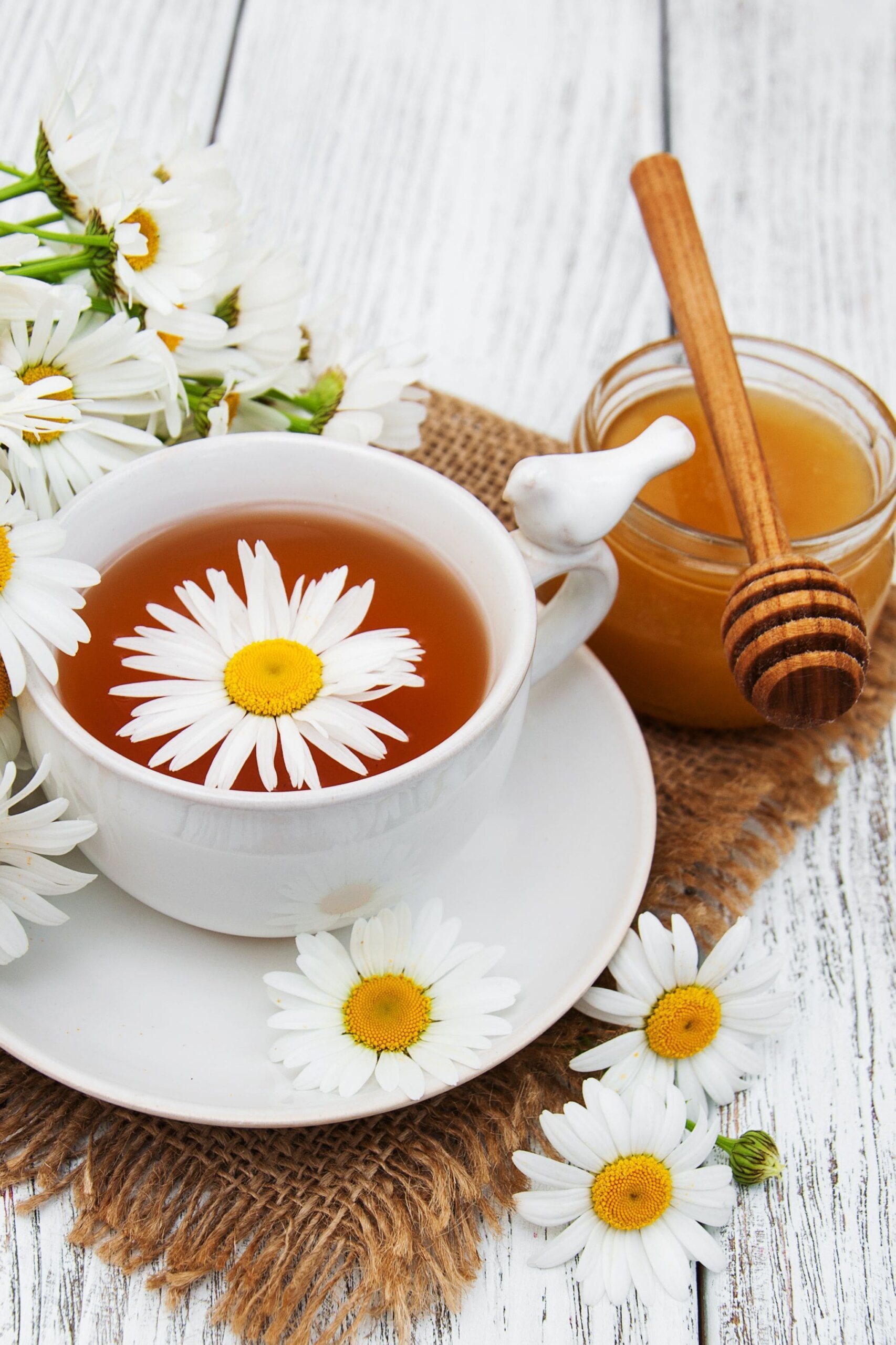
Creative Uses
Chamomile tea isn’t just for sipping. Think outside the cup! Use it as a base for iced tea, smoothies, or even soups. You can also chill it and use it as a toner to calm and balance your skin!

Precautions and Considerations
While chamomile tea is generally safe, there are a few precautions to keep in mind:
- Allergies: Individuals those are allergic to plants in the daisy family may experience allergic reactions to chamomile.
- Medication Interactions: Chamomile may interact with blood thinners, sedatives, and other medications. If you have any underlying conditions, consult a healthcare provider before consuming chamomile regularly.
- Pregnancy and Breastfeeding: Pregnant women should consult a healthcare provider before drinking chamomile tea, as it may have uterine-stimulating effects.
- Moderation: Overuse of chamomile tea can lead to side effects like nausea or dizziness. Just make sure to enjoy the tea in moderation.
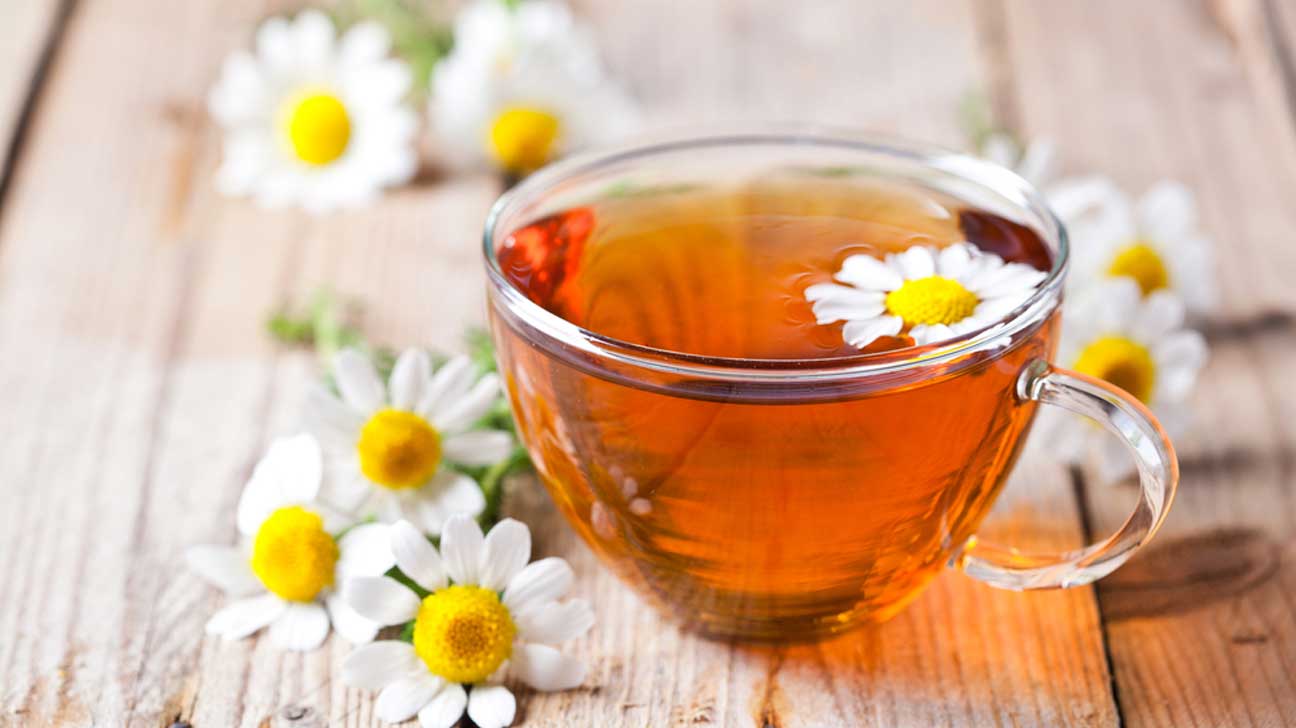
Conclusion
Chamomile tea is a timeless remedy that offers a range of benefits for both the mind and body. From promoting relaxation and sleep to boosting immunity, this humble herbal tea is a natural way to enhance your health. By incorporating it into your daily routine, you can harness its calming effects and overall wellness benefits. However, it is crucial to use chamomile tea in moderation and be mindful of possible side effects.








